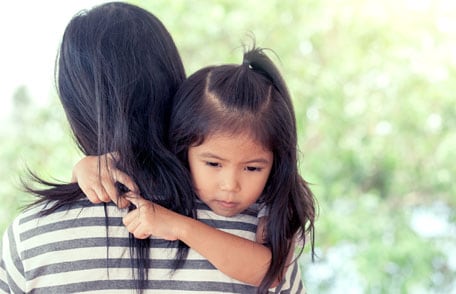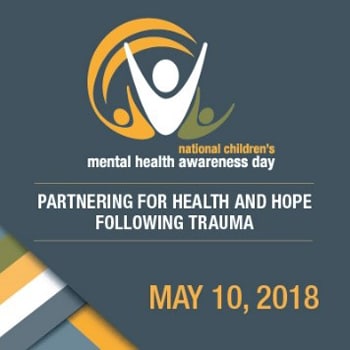Your Child Is At Risk for Mental Health Issues After a Disaster

After a disaster, children may experience anxiety, fear, sadness, sleep disruption, distressing dreams, irritability, difficulty concentrating, and anger outbursts. Learn the signs of children’s mental stress to help them cope after a disaster.
Experiencing a disaster can cause stress for families. Young children, under 8 years of age, are at particular risk for mental health issues. Some children may develop disorders like anxiety, depression, and post-traumatic stress disorder after a disaster. Stress and emotional problems affect children’s physical health, quality of life and how they do at home, in school, and in their communities. It is important to keep children mentally and physicallysafe both during and after a disaster. Parents who are able to recognize the signs of children’s mental stress can best help their children cope and remain healthy.
Why are children at risk for mental health issues after a disaster?
Mental stress from a disaster can be harder on children because they
- Understand less about the situation,
- Feel less able to control events, and
- Have less experience coping with difficult situations.
Disasters can be particularly hard on children who have experienced trauma in the past or already have a mental, emotional, developmental, or behavioral disorder before the event occurs.
How can parents and caregivers help children cope after a disaster?
- Give your children opportunities to talk about what they went through or what they think about it. Encourage them to share concerns and ask questions.
- Allow your children to be with you or another trusted adult who can help them feel safe, calm, connected, and give them a sense of hope.
- Limit exposure to mass media coverage of the disaster and its aftermath. Children who were directly exposed to a disaster can become upset again if they see or hear reminders of what happened.
- Encourage your children to take action directly related to the disaster. This can help them regain a sense of control and manage their feelings. For example, children can help others after a disaster, including volunteering to help community or family members in a safe environment. Children, especially young children, should NOT participate in disaster cleanup activities.
- Work with teachers and other adults, who see your children in different situations, to share information about how each child is coping.
When should you seek help from a professional?
Children may need continued mental health support for months or longer following a major disaster. Consider talking to a professional (e.g., pediatrician, school counselor, child psychologist, or someone who specializes in children’s emotional needs) if:
- Your child continues to be very upset (e.g., anxious, fearful, sad, angry) for more than 2-4 weeks after the disaster,
- Your child’s problems become worse over time instead of better,
- Your child’s reactions affect their schoolwork or relationships with friends or family
Helping a child cope with disaster can be challenging for parents. Any time you feel it is necessary, reach out for professional help and support for you and your child. The Substance Abuse and Mental Health Services Administration (SAMHSA) Behavioral Mental Health Treatment Services Locator can help you find support: 1-800-662-4357 or online at https://findtreatment.samhsa.gov/.
Additional Resources
- Helping Children Cope With a Disaster (Public Health Matters blog)
- How are Children Different from Adults?
- Coping with a Disaster or Traumatic Event
- Helping Children Cope with Emergencies
- Children’s Mental Health
- Promoting Adjustment and Helping Children Cope
- Helping Children Cope (FEMA Ready)
- Helping Children and Adolescents Cope with Violence and Disasters: What Parents Can Do (Spanish version)






















.jpg)












No hay comentarios:
Publicar un comentario